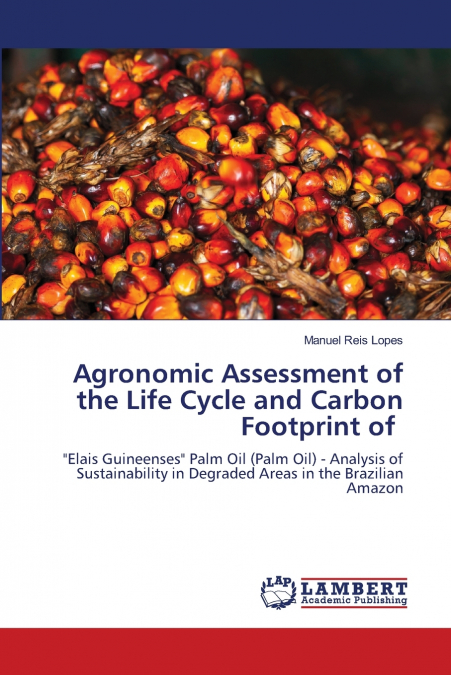
Manuel Reis Lopes
Elaies guiniensis (palm oil) is an important commodity that contributes to the livelihoods of many communities, to the GDP of governments and to the achievement of several sustainable development goals (SDGs), biodiversity and climate change However, its continuous cultivation and expansion, due to high and growing demand, has led to many negative effects and subsequent calls to make production sustainable. Sustainable oil palm production is part of the global vision of sustainability, which over the years, economic crises and the climate change debate have focused the attention of academics, industrialists and policymakers to promote a green economy. In this context, the dissertation focused on the economic/financial evaluation and life cycle evaluation of an investment project for oil palm production, covering all phases from the formation of seedlings to their harvest. The quantification of the carbon footprint (emission of greenhouse gases) as well as other environmental impacts with effects on human health, biodiversity and resources, in degraded areas in the Brazilian Amazon.